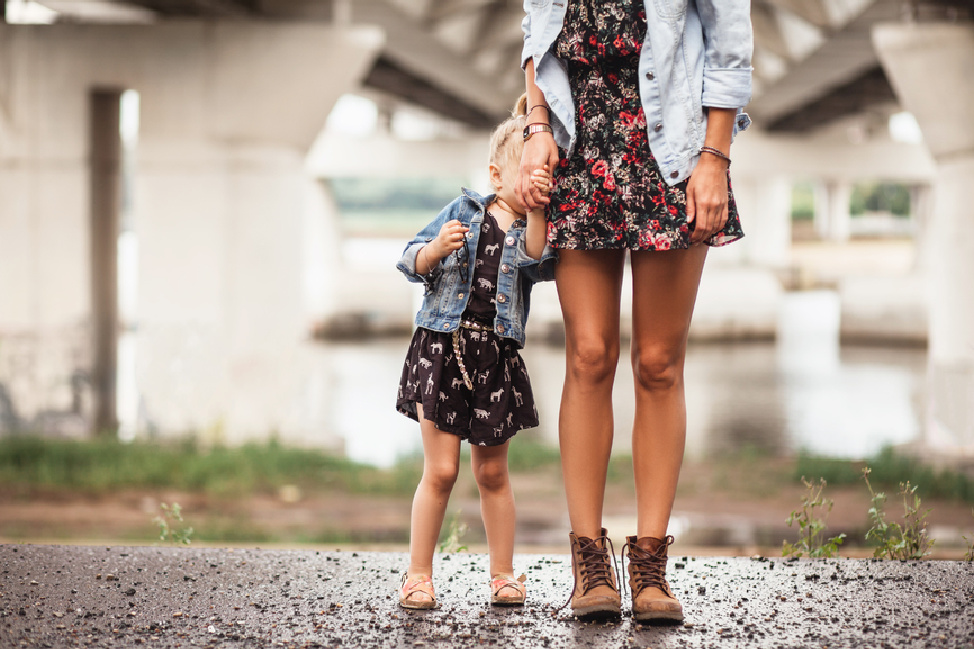Guest Post by Bridgett Miller
As parents, we know that on some days, we feel more on top of our parenting game than on others.
So, it’s understandable we would assume that our children’s behaviour is what determines how we’re feeling because to some extent it does.
When they are co-operative, our days are less intense and so we’re likely to feel more competent and together.
On other days, when they’re cranky and defiant, we can’t help but feel frustrated and worn out. There’s no question that their behaviour impacts our mood, but more often than we realize, it’s our general underlying emotional state that sets the stage for how we respond to them.
Becoming more aware of my inner state has made an enormous difference to the quality of the interactions I have with my children. On days when I’m feeling content, everything seems to go better for us. It’s not that everything works out for me the way I want it to, it’s more that when things don’t go my way, I’m better able to take it in my stride and not get as provoked by them or the situation.
Contrast this with days when I have a lot on my plate and I’m feeling overwhelmed or frustrated and it’s a completely different scenario. I’m much more irritable and easily triggered and I’m far more prone to reacting without considering the potential impact of my words and actions.
I have come to see that although my children’s behaviour has an effect on the way I feel, they are not responsible for my behaviour. I am.
When I made a point of checking in with myself before engaging with my children, I came to notice that when I was feeling less stressed, even their most challenging behaviour wasn’t such a big deal to me. Ordinary encounters like repeatedly asking them to do something and them not doing it, were still annoying but rather than getting worked up over it, I’d simply remind them or help them to do what needed to be done.
Sometimes I’d even just do it myself because it really wasn’t necessary for me to call them on their every transgression. When I felt more relaxed within myself, I seemed to naturally align with what I needed to do and no longer felt the need to make mountains out of molehills. My children sensed my calmer disposition too and because I wasn’t layering my pent-up frustration on top of theirs, we’d move through our days far more amicably.
My discovering this didn’t take intellect, it took willingness and vulnerability.
It required me to be open to seeing that the energy I was bringing to our interactions was having a direct impact on my relationship with my children and on our family. It’s often much harder to look inwards and consider our part in the equation than it is to look outside of ourselves and blame the actions of another for our conduct. When we consistently attribute our sense of inner discontent to the actions of our children, we tend to think it’s them who need to change their behaviour, when really it’s us that has the emotional work of adaptation to do.
Always keep in mind that young children are supposed to behave like immature children.
Expecting otherwise is a recipe for parental disappointment. Children have their moments just like we do, and it’s how we respond to them that has the greatest influence on how interactions between us unfold. As it turns out, how we behave when we are with them is something we can learn to control, but first we have to become aware of the impact of our ways and then being willing to change them if need be.
Here’s what you can do…
When you find yourself being provoked by your child’s behaviour be sure to turn inwards to get a sense of how you’ve been feeling lately. If you’re able to recognize that you’ve been upset, stressed, or frustrated, you’ll be more likely to stop yourself from making their current behaviour the reason for your acting out.
How you’re feeling determines how you behave and this has more to do with the buildup of frustration, hurt, or disappointment already in your emotional system than it does with what your child has done in this very moment. It’s not always easy to do, but with a soft heart, a little willingness, and a bit of practice, you’ll find your way.
If you are struggling with controlling your anger, consider seeking the support of a professional counsellor or therapist.
Today’s parenting affirmation: I am willing to look at the energy I bring to my parent-child interactions.
About the Author: This post is an excerpt from Bridgett’s new book, What Young Children Need You to Know: How to See Them So You Know What to do For Them. Bridgett Miller is a preschool and elementary teacher, remedial therapist, presenter and parent consultant. She is an Authorized Facilitator of the Neufeld Institute and the creator of Look with Love and Parenting with Intention on Facebook and Instagram. Click here to download the first five chapters of her book for free.

Comments